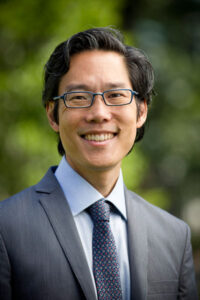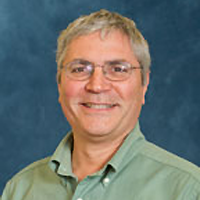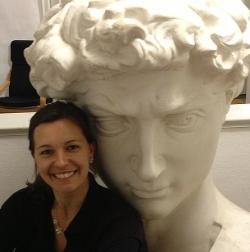
Laurence Steinberg, Ph.D.
Distinguished University Professor
Laura H. Carnell Professor of Psychology
Temple University

Laurence Steinberg, Ph.D.
Distinguished University Professor
Laura H. Carnell Professor of Psychology
Temple University
“Age of Opportunity: Lessons From the New Science of Adolescence”
Abstract: Adolescence now lasts longer than ever, and the adolescent brain is surprisingly malleable. These new discoveries make this time of life crucial in determining a person’s ultimate success and happiness. In this lecture, Laurence Steinberg will discuss the teenage brain’s potential for change, the links between brain development and risk-taking in adolescence, the elongation of adolescence as a developmental stage, and the implications of each for how we parent, educate, and understand young people.
Tuesday, September 22, 2015
The Child Study Center’s 2015 Lois Bloom Lecture
4:15 p.m., The Nittany Lion Inn, Assembly Room

Daniel Messinger, Ph.D.
Professor of Psychology, Pediatrics, Electrical & Computer Engineering, and Music Engineering
Cooper Fellow, University of Miami

Daniel Messinger, Ph.D.
Professor of Psychology, Pediatrics, Electrical & Computer Engineering, and Music Engineering
Cooper Fellow, University of Miami
“Emotions, Interaction, and Autism: Timing and Development”
Abstract: Can real-time social processes illuminate developmental achievements? A dynamic systems perspective, new measurement and modeling approaches are used to understand the expression of emotion and the development of social communication in infants at risk for autism and typically-developing infants.
Thursday, October 8, 2015
4:15 p.m., 127 Moore Building
Penn State’s 23rd Annual National Symposium on Family Issues
Monday, October 26, 2015, 8:00 a.m. to Tuesday, October 27, 2015, 4:00 p.m.
Nittany Lion Inn, Ballroom

Hirokazu Yoshikawa, Ph.D.
Courtney Sale Ross Professor of Globalization and Education
Steinhardt School of Culture, Education, and Human Development
New York University

Hirokazu Yoshikawa, Ph.D.
Courtney Sale Ross Professor of Globalization and Education
Steinhardt School of Culture, Education, and Human Development
New York University
“Being Undocumented in the U.S. and the World: Integrating Developmental Science, Practice, and Policy”
Abstract: In this lecture I will present results from a multi-method longitudinal study of immigrant parents and their U.S.-born citizen children, as well as follow-up studies of low-income immigrant parents’ access to human services. A research agenda for studying issues of unauthorized migration and child development in low- and middle-income countries will also be presented. Implications for future directions in immigration policy and research will be explored.
Dr. Yoshikawa is also presenting the BENNETT LECTURE
Thursday, October 29, 2015
4:00 p.m., 22 BBH Building/Ruth Pike Auditorium
“Improving Quality in Early Childhood Education in the Context of the Post-2015 Sustainable Development Goals”
Wednesday, October 28, 2015
4:15 p.m., 127 Moore Building
CSC Co-Sponsors: Databrary Project Workshop
“Coding, Sharing, and Reusing Video Data with Databrary”
Registration is required.
Friday, March 25, 2016
10:30 a.m. to 2:00 p.m., 127 Moore Building

Marc A. Zimmerman, Ph.D.
Professor and former Chair, Department of Health Behavior and Health Education,
School of Public Health
Professor, Psychology and the Combined Program in Education and Psychology
University of Michigan

Marc A. Zimmerman, Ph.D.
Professor and former Chair, Department of Health Behavior and Health Education,
School of Public Health
Professor, Psychology and the Combined Program in Education and Psychology
University of Michigan
“Youth Empowerment Solutions: Theory, Research, and Practice”
Abstract: This presentation will discuss empowerment theory conceptualized as three integrated components: 1) feeling (intrapersonal); 2) thinking (interactional); and doing (behavioral). Empirical results supporting this conceptualization will be presented showing a measurement model of psychological empowerment comprises these three components in a sample of middle school students. Data are also presented showing how the measure of psychological empowerment is associated with less aggressive behavior and more prosocial engagement. Application of this model of psychological empowerment theory to an after school program designed to engage youth in community change will be described. Initial results of the program evaluation are presented.
Thursday, April 7, 2016
12:00 p.m., 127 Moore Building

Tracy Alloway, Ph.D.
Associate Professor of Psychology
Master's Program Director
University of North Florida

Tracy Alloway, Ph.D.
Associate Professor of Psychology
Master's Program Director
University of North Florida
“Working Memory – Is it the New Intelligence”
Abstract: Working memory, our ability to work with information, plays an important role in learning from kindergarten to the college years. In this talk, I review the what, the why, and the how of working memory. First, we explore the relationship between working memory, short-term memory, and long-term memory. We also investigate research on the link between whether environmental factors, such as financial background and mother’s educational level, affect working memory. In the Why of Working Memory—we compare the predictive nature of working memory and IQ in learning outcomes. While IQ typically measures the knowledge acquired by the student, working memory measures what they do with that knowledge. Working memory skills are linked to key learning outcomes, including reading and math. In the final section, we present classroom strategies to support working memory. We also review current research on the efficacy of working memory training.
Thursday, April 21, 2016
4:15 p.m., 127 Moore Building

Shannon Wanless, Ph.D.
Assistant Professor, Program of Applied Developmental Psychology
Department of Psychology in Education
School of Education
University of Pittsburgh

Shannon Wanless, Ph.D.
Assistant Professor, Program of Applied Developmental Psychology
Department of Psychology in Education
School of Education
University of Pittsburgh
“Building Relationships So You Can Study Building Relationships”
Abstract: Studying implementation science in schools means engaging regularly with educators who are operating beyond their personal and organizational capacity. They have every reason to want to protect themselves and their colleagues from researchers who might want to “add one more thing to their plates.” Dr. Wanless’s research focuses on the ways that this capacity and related relationships in schools can influence implementation quality and ultimately, teacher and child outcomes. In this presentation, Dr. Wanless will describe how this line of research interacts with real world efforts to build relationships with educators and gain access to their worlds.
Co-Sponsored with The Training Interdisciplinary Educational Scientists Fellowship
Friday, April 22, 2016
1:00 – 2:00 p.m., 127 Moore Building